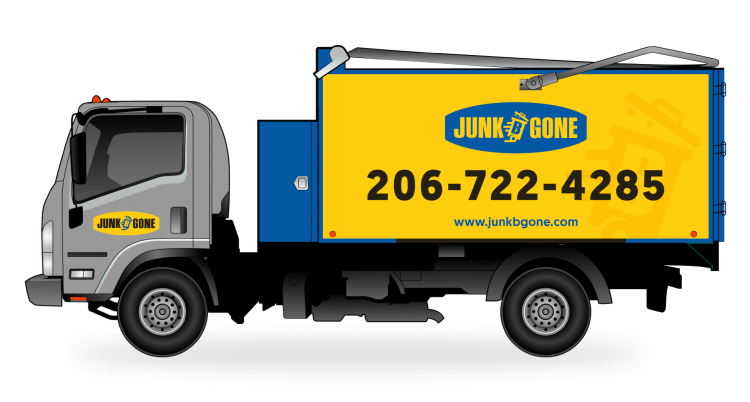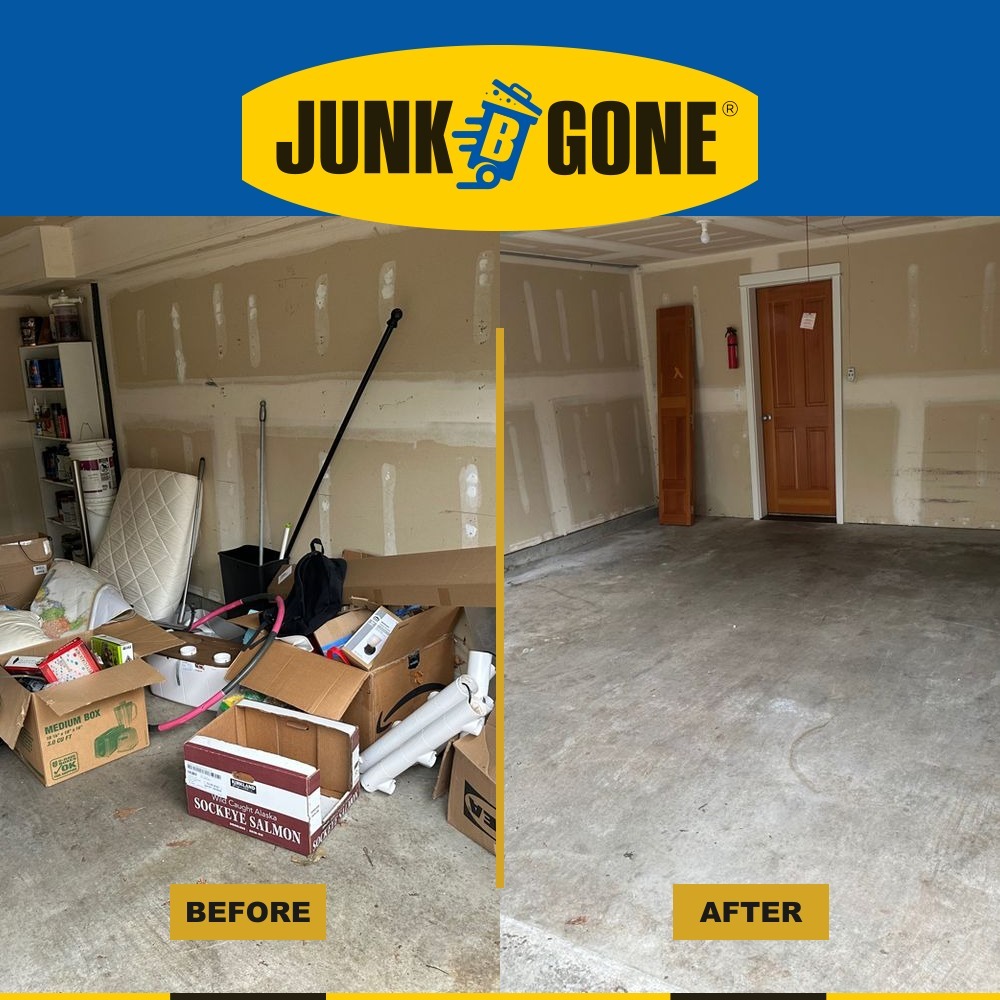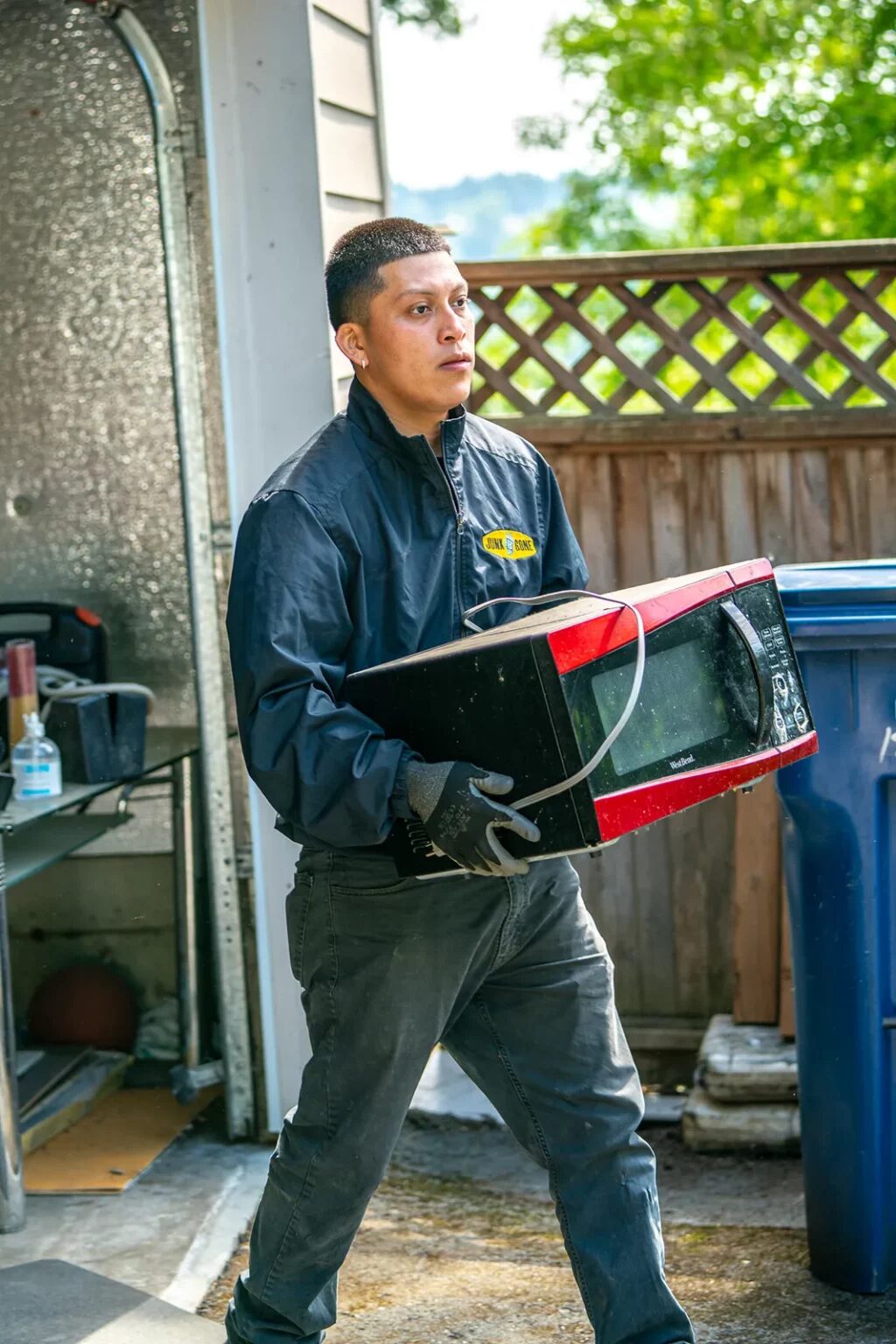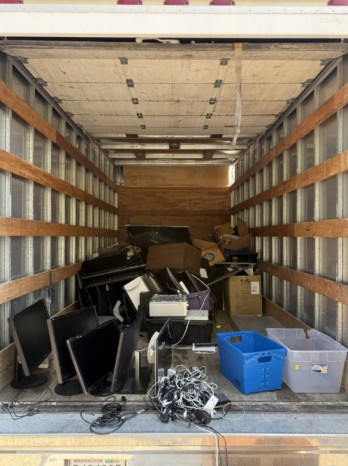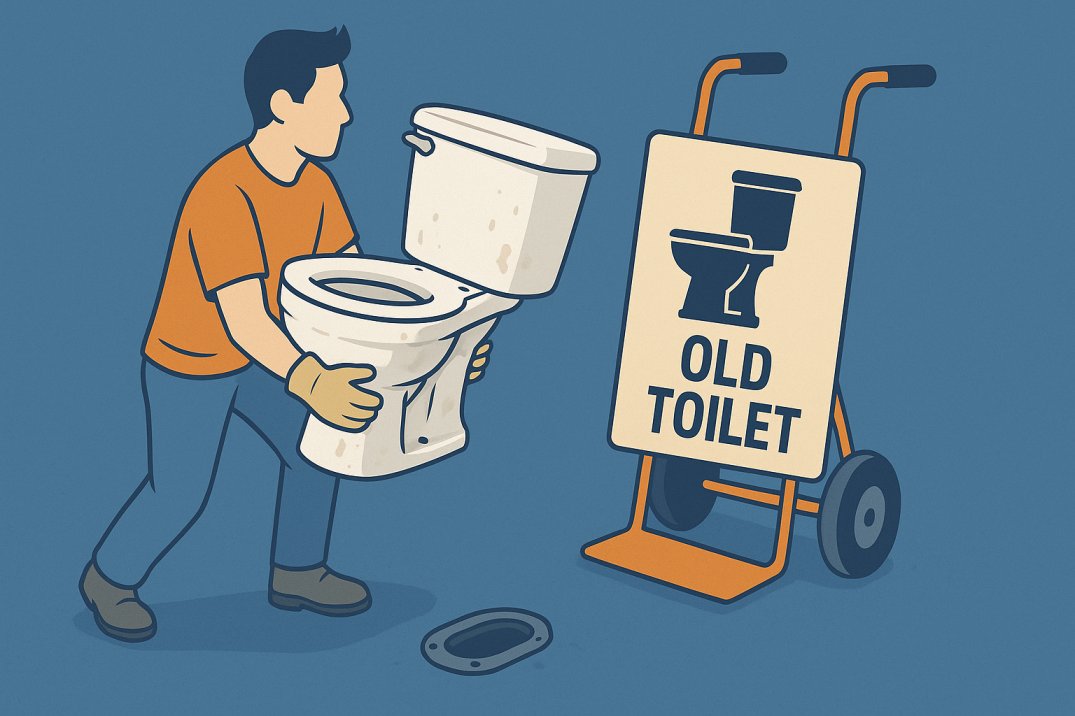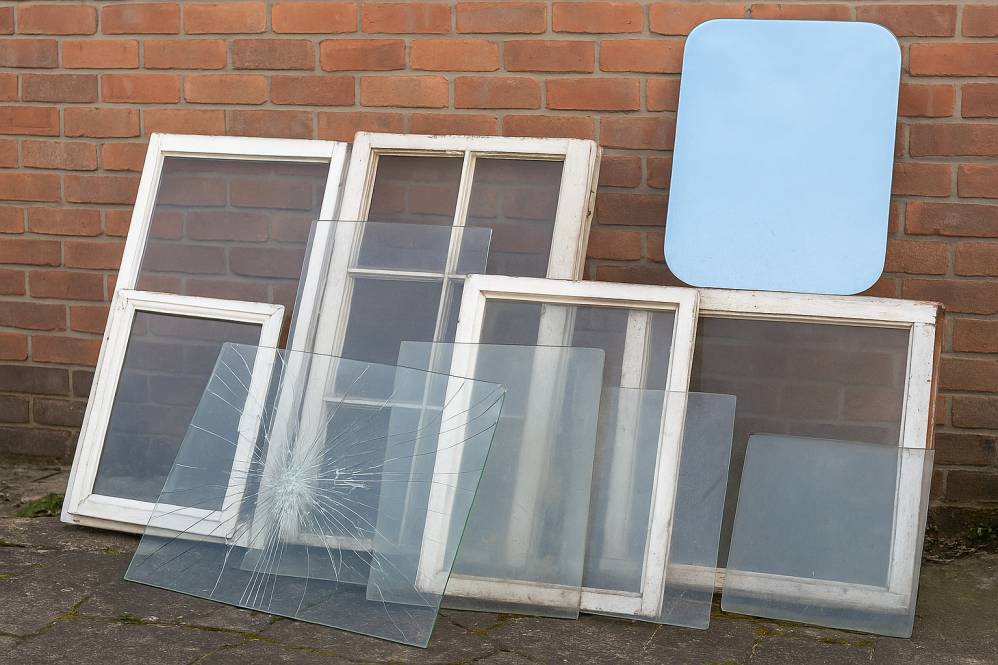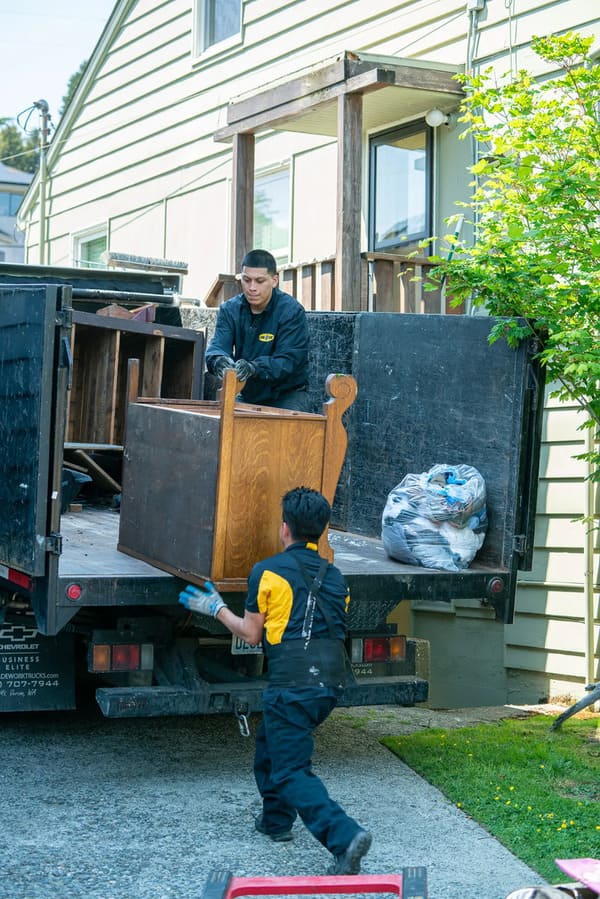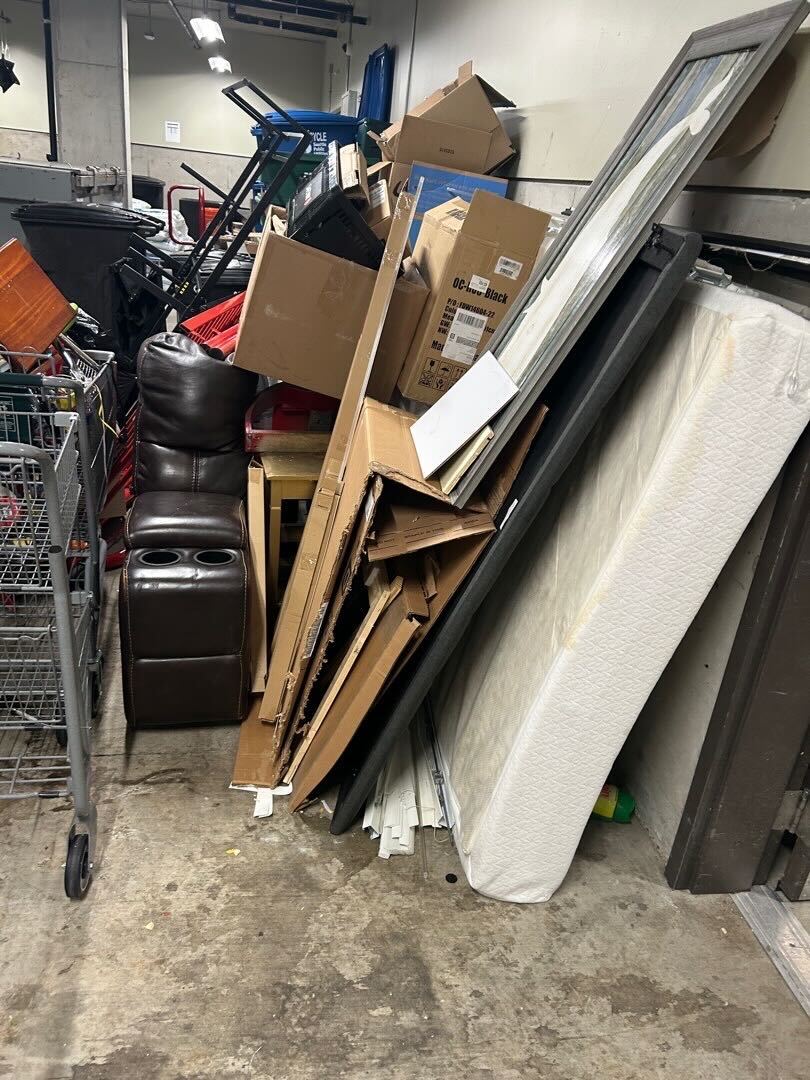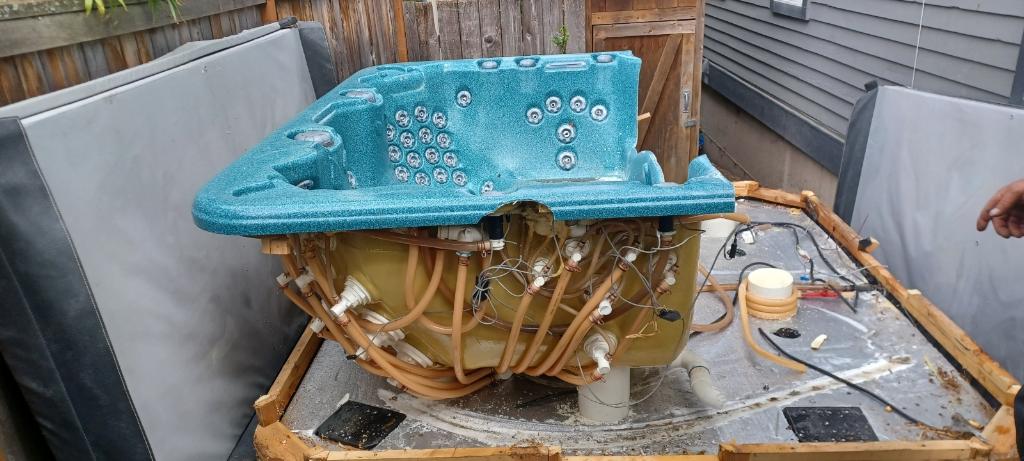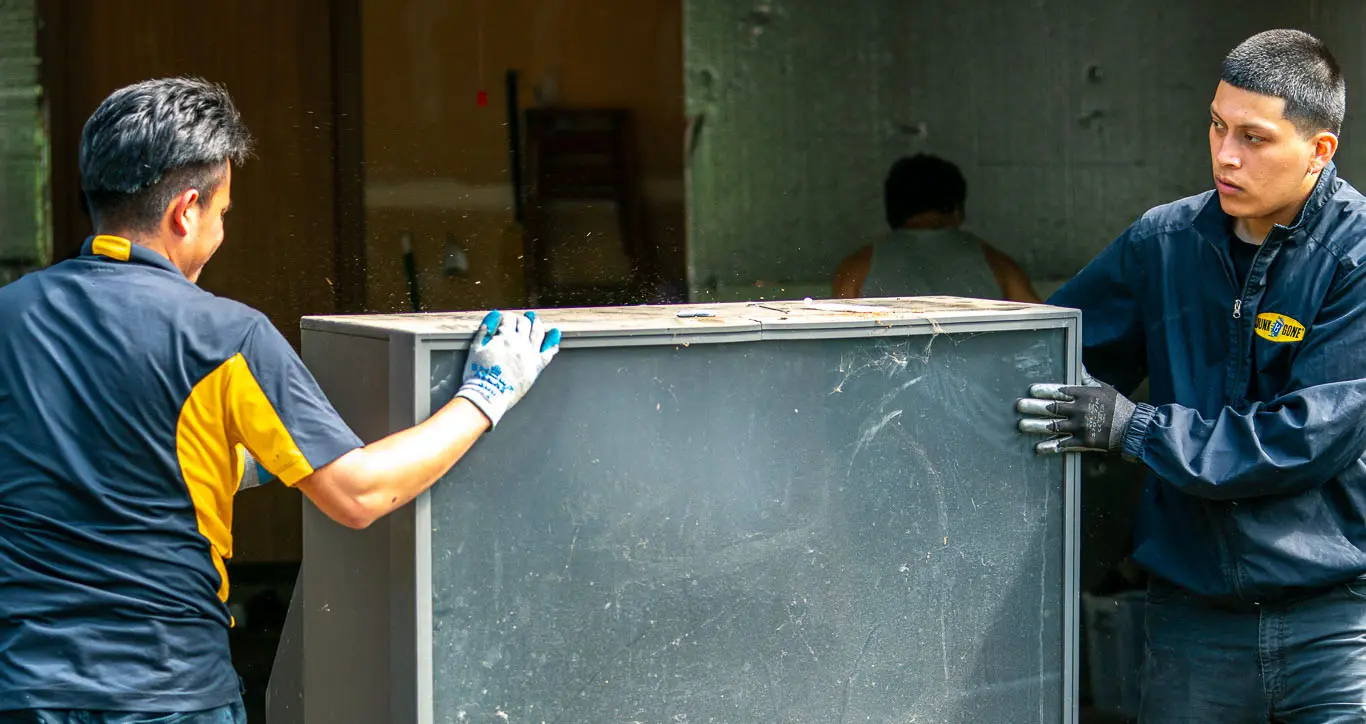At some point, every camper trailer reaches the end of the road. Maybe it’s been sitting in your driveway for years, gathering rust and mold, or perhaps it’s become too expensive to repair or register. What once brought freedom and adventure now feels like a burden that’s taking up valuable space.
Getting rid of an old camper trailer, however, isn’t as simple as towing it to the curb. Campers are bulky, contain mixed materials like metal, wood, and fiberglass, and often include hazardous parts such as propane tanks or old appliances. That means you can’t just toss them in the trash — proper disposal requires planning, and in some cases, professional help.
Many owners also struggle to find legal or affordable options. Junkyards may turn away certain models, and selling can be tough if it’s not in drivable condition. The good news? You have several safe, legal, and eco-friendly ways to handle it — from recycling and donating to professional removal. In this guide, we’ll break down exactly how to get rid of an old camper trailer the right way, step by step.
Why You Might Need to Get Rid of Your Old Camper
Over time, even the most reliable camper trailers start showing their age. Weather exposure, leaks, and years of road wear can leave your RV looking less like a weekend escape and more like a backyard eyesore. When maintenance costs begin to pile up, or the structure becomes unsafe, it’s often smarter to let it go than to keep patching it up.
Common Reasons for Camper Trailer Disposal
Here are a few of the most common reasons people decide to part ways with their campers:
- Extensive damage or rust: Frames corrode, roofs leak, and floors rot — repairs can easily cost more than the camper’s value.
- Outdated or unsafe features: Older trailers might not meet modern electrical or plumbing standards.
- Expensive upkeep: Insurance, registration, and storage fees add up quickly, even for a camper that barely moves.
- Lack of use: Sometimes life changes — new hobbies, growing families, or simply less time for travel — and the camper just sits unused.
When Repairs Aren’t Worth It
If fixing your camper costs more than what it’s worth, that’s a clear sign it’s time to say goodbye. Think of it like an old car — at some point, replacing parts and paying for labor just doesn’t make sense. Instead, exploring removal or recycling options can save you money and free up space.
Making Space and Staying Safe
An unused camper can quickly become more than an inconvenience — it can pose real safety risks. Broken windows, pest infestations, and mold are all common issues in aging trailers. By disposing of it properly, you’ll not only reclaim valuable space but also prevent potential hazards on your property.
Sometimes, letting go of your old camper isn’t just practical — it’s a fresh start toward something new, cleaner, and easier to maintain.
Can You Scrap an Old Camper Trailer?
Yes — in most cases, you can absolutely scrap an old camper trailer, but it takes a bit of prep work before you roll it off to the junkyard. Many scrap yards and recycling centers accept campers because they contain valuable materials like steel, aluminum, and copper. However, you’ll need to make sure it’s properly emptied and safe for recycling first.
What Parts of a Camper Can Be Recycled?
A camper is a mix of recyclable and non-recyclable materials. The good news? A large portion of it can be reused.
Here’s what’s typically accepted:
- Metal frame and body panels: Aluminum and steel are the most valuable materials for scrap.
- Wiring and appliances: Scrap yards often take copper wiring, old fridges, and stoves.
- Plastic components and fiberglass: Some facilities recycle these, depending on local capabilities.
If your camper is mostly metal, it could fetch a modest scrap value between $100 and $500, depending on weight, materials, and the current metal market. Aluminum frames generally bring in more value than steel ones due to higher recycling rates.
Before You Scrap: Remove Hazardous and Non-Metal Items
Before you head to the yard, take a few precautions to ensure a smooth (and safe) drop-off:
- Remove propane tanks and fuel: These are considered hazardous and cannot be processed at scrap yards. Take them to a designated gas cylinder recycling site instead.
- Drain all fluids: Coolants, oils, and other liquids should be disposed of safely at a waste facility.
- Clear out non-recyclable materials: Upholstery, wood, and insulation usually need separate disposal.
Scrapping your camper is one of the most eco-friendly ways to say goodbye to it — not only do you clear space, but you also ensure that the metals and parts are reused rather than rotting in a landfill. It’s a small step toward keeping your cleanup sustainable and responsible.
Selling vs. Disposing: Which Is Better?
When you’re ready to part ways with your old camper trailer, the big question is — should you try to sell it or just get rid of it? The answer depends on its condition, age, and whether it still holds any value for someone else.
When Selling Makes Sense
If your camper is still structurally sound, has working appliances, or can be restored with a little TLC, you might be surprised how many buyers are out there. People love fixer-upper projects or inexpensive camping setups, especially for hunting trips or tiny home conversions.
You can list your camper on:
- Facebook Marketplace – for quick local buyers.
- Craigslist – perfect for selling “as-is” vehicles.
- RV Trader or dedicated RV forums – where enthusiasts search for used parts or project campers.
Even if it’s not road-ready, you can still sell parts — windows, doors, appliances, or even the frame can have value to DIY builders. Just be transparent about the condition and what works or doesn’t.
When It’s Time to Dispose Instead
If your camper is beyond repair — water damage, mold, missing parts, or structural rot — then selling might not be worth the effort. In these cases, calling a professional junk removal company can save you time and frustration. They’ll handle everything from towing to proper disposal or recycling, ensuring it’s done safely and legally.
Think of it this way:
- Sell it if someone else can use it or its parts.
- Dispose of it if it’s unsafe, unsellable, or more trouble than it’s worth.
Either way, taking action frees up space and gives you peace of mind — and if you choose the right route, you might even earn a few dollars in the process.
Donate Your Camper Trailer
If your camper still has life left in it but you don’t want the hassle of selling, donating it can be a meaningful and stress-free option. Many nonprofits and community organizations accept camper trailers in usable condition and put them to good use — whether for housing assistance programs, outdoor education, or fundraising auctions.
Where You Can Donate a Camper
Here are a few organizations that sometimes accept camper donations:
- Habitat for Humanity ReStores – Some locations may take RVs or campers if they meet safety and condition standards.
- Local charities or churches – They may use them for community projects or as temporary shelters.
- Veteran or youth organizations – Some programs refurbish donated campers for training or recreational use.
Just make sure to call ahead and confirm whether they accept campers — policies vary depending on the organization and condition of the unit.
Requirements for Camper Donation
Before you schedule a donation pickup, make sure your camper meets basic requirements:
- It must have a clean title (no liens or ownership issues).
- It should be towable and safe to transport.
- The interior and exterior should be in reasonable condition — no major leaks, mold, or structural damage.
If your camper doesn’t meet those standards, some charities partner with third-party towing services that can still take it for recycling and provide a small tax deduction in return.
Tax Benefits of Donating
When you donate your camper to a registered 501(c)(3) nonprofit, you may qualify for a tax deduction equal to its fair market value. Always request a donation receipt and keep documentation for your records — it’s a win-win: you free up space, help a good cause, and save a bit during tax season.
Donating your camper not only supports your community but also ensures that it gets a second life instead of ending up in a landfill — a decision that’s both generous and eco-friendly.
Junk Removal Services for Old Camper Trailers
When your camper trailer is too damaged to sell or donate, calling in the professionals is often the smartest move. Junk removal companies like Junk B Gone specialize in hauling away large, heavy, and awkward items — including old campers that are no longer safe or roadworthy. This means you can finally clear that eyesore from your driveway or backyard without lifting a finger.
Why Choose Professional Camper Removal?
Let’s face it — disposing of a camper isn’t as simple as hauling out an old couch. It’s big, heavy, and often filled with materials that need special handling. With professional junk removal, you don’t have to worry about:
- Towing or transportation: The crew brings the equipment and vehicles needed to move it safely.
- Paperwork or disposal logistics: They handle the process from start to finish, ensuring the camper is disposed of in compliance with local regulations.
- Eco-friendly disposal: Recyclable metals, electronics, and appliances are separated, keeping unnecessary waste out of landfills.
This service is especially useful if your camper has been sitting for years, has flat tires, or is stuck in a tough-to-reach area — they’ll take care of everything.
What to Expect During Pickup
When you schedule a camper removal with Junk B Gone, the process is simple and efficient:
- Inspection and estimate: The team evaluates your camper’s condition and gives you a clear, upfront price.
- Safe removal: Using professional equipment, they carefully load and secure your camper for transport.
- Eco-friendly processing: Once removed, the camper is taken to an approved facility for recycling, salvaging, or proper disposal.
No stress, no mess — just a hassle-free way to say goodbye to your old camper while ensuring it’s handled responsibly. With Junk B Gone, you get peace of mind and your space back without the headache of doing it yourself.
How Much Does It Cost to Get Rid of a Camper Trailer?
Getting rid of an old camper trailer isn’t always free — but knowing what to expect can help you budget wisely. Costs vary based on size, condition, and location, but the convenience and peace of mind of having it professionally removed are often worth it.
Factors That Affect the Cost
Several factors play into the overall price of camper removal:
- Size and weight: Larger campers or RVs require more labor and heavier equipment.
- Condition: If the camper is falling apart or has flat tires, it may require extra prep or dismantling.
- Accessibility: Campers stuck in backyards or tight driveways can take more time and effort to remove.
- Distance to disposal site: The farther it needs to be towed or hauled, the higher the transport costs.
- Local disposal fees: Some landfills or recycling centers charge per ton for camper disposal.
Each of these details can influence the final price — so it’s always smart to ask for a free on-site estimate before scheduling removal.
Typical Price Range
On average, professional camper removal costs between $300 and $1,000, depending on the size and complexity. Small pop-up trailers may be on the lower end, while full-size or heavily damaged RVs could cost more.
If you’re doing it yourself, you’ll still have some costs to consider:
- Towing or trailer rental: $100–$300
- Landfill or recycling fees: $50–$150
- Time and labor: A full day of effort (and possibly a sore back)
When you add everything up, hiring a junk removal service often makes sense. You pay a single fee, and the company handles everything — from the heavy lifting to eco-friendly recycling.
DIY vs. Professional Removal
If your camper is small, roadworthy, and you already have a truck or trailer, DIY removal can save some money. But if it’s damaged, immobile, or unsafe, going the professional route is safer, faster, and often more cost-effective in the long run.
In short:
- DIY = lower cost, higher effort
- Professional = higher convenience, guaranteed safe disposal
For most people, hiring pros like Junk B Gone is the best way to get that old camper off your property quickly — without the stress, sweat, or surprise fees.
Eco-Friendly Camper Disposal Options
Getting rid of your old camper trailer doesn’t have to mean sending it straight to the landfill. In fact, responsible and eco-friendly disposal is one of the best things you can do for both your community and the environment. Old campers often contain toxic materials, electronics, and heavy metals that can leak into soil and water if not handled properly — so recycling and sustainable disposal are key.
Why Responsible Disposal Matters
A single camper can contain hundreds of pounds of metal, fiberglass, and treated wood, along with components like batteries, propane tanks, and refrigerants that are harmful if dumped irresponsibly. Proper disposal ensures that:
- Hazardous materials are safely removed and processed.
- Metals and reusable materials are recycled instead of wasted.
- Landfill space is reduced, keeping the environment cleaner for everyone.
It’s not just about clearing your yard — it’s about doing it in a way that minimizes your environmental footprint.
How Recycling Makes a Difference
Recycling a camper helps break it down into parts that can be reused. Common recyclable materials include:
- Steel and aluminum frames – melted down and reused in construction or manufacturing.
- Appliances and wiring – contain valuable copper and other metals.
- Glass and plastic fixtures – often repurposed into industrial materials.
This process keeps waste out of landfills and supports the circular economy, where old materials get a second life.
Who Handles Eco-Friendly Camper Disposal?
Many junk removal and recycling companies, including Junk B Gone, now offer eco-conscious camper removal. These services prioritize recycling and work with certified facilities to ensure proper dismantling and reuse of materials. Instead of simply dumping your camper, they separate and process everything responsibly — giving you peace of mind that your junk won’t harm the planet.
Choosing a sustainable disposal option not only helps protect the environment but also shows that you’re part of a growing movement toward smarter, greener living. So the next time you need to get rid of a camper, make sure it goes to a place where it can be recycled, repurposed, or responsibly retired.
Frequently Asked Questions
When it comes to getting rid of an old camper trailer, it’s normal to have questions — especially since disposal rules can vary depending on your state or the camper’s condition. Below are some of the most common questions people ask before saying goodbye to their old RV or trailer.
What paperwork do I need to dispose of a camper trailer?
In most cases, you’ll need to provide proof of ownership — usually a title or registration — before scrapping, selling, or donating your camper. This helps prevent illegal dumping or stolen property issues. If your camper no longer has a title, you can usually request a replacement from your local DMV before arranging disposal. Some junk removal companies like Junk B Gone can assist with paperwork requirements for non-towable or damaged campers.
Can I recycle my old RV or camper?
Yes, many parts of your camper can be recycled, including metal frames, wiring, and appliances. However, the process can be complex because campers are made from a mix of materials — wood, fiberglass, foam, and metal. That’s why it’s best to work with licensed recyclers or professional junk removal services that partner with certified recycling facilities. This ensures that as much of your camper as possible is reused or repurposed responsibly.
What if my camper is not towable?
If your camper is too damaged to tow, don’t worry — junk removal companies have the equipment to handle it. Junk B Gone, for example, offers on-site disassembly and hauling, so even if your camper has flat tires, a collapsed frame, or is stuck in your yard, they can remove it safely without causing damage to your property.
How much is a scrap camper worth?
The scrap value depends on weight and material composition. On average, a camper may be worth $100 to $500 in scrap metal, though this can vary based on size and current metal prices. Keep in mind that dismantling and transportation costs can often outweigh scrap value — making professional removal a more practical option for most homeowners.
Does Junk B Gone remove camper trailers?
Yes! Junk B Gone specializes in hauling away old, broken, or unwanted camper trailers. Their team handles everything — from assessing the camper and removing hazardous materials to transporting it for recycling or eco-friendly disposal. Whether your camper is parked in a driveway, backyard, or storage lot, they can make the process quick, simple, and stress-free.

